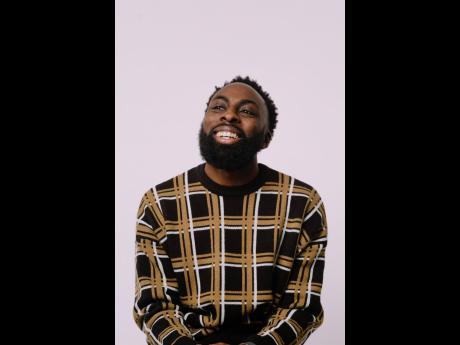5 Questions With Aniefiok Ekpoudom
It is not an unusual path for journalists to later change course and enter the field of law; what is not so usual is for it to happen the other way around. But, Aniefiok Ekpoudom, who is currently a full-time writer, actually chose the legal profession first and is a law graduate from the University of East Anglia in Norwich.
The twenty-nine-year-old, who was born in Lewisham, South London, ditched law for journalism. Last year he won the Barbara Blake-Hannah Award, named in honour of the Jamaican who was the first black female presenter on British television. The award recognises emerging, talented journalists from minority backgrounds.
Ekpoudom is grateful and happy. He told 5 Questions that he enjoys writing about black British music.
“It was the music I had grown up with, that my friends had grown up with, and was what had (still does) impact me most. But whenever I sought out interviews or essays on these artistes [and] genres, it felt like they were being treated like an afterthought by newspapers and magazines. I wanted to write pieces that covered these sounds with the nuance they deserved, as well as seeking to bring to the page some of the deeper cultural impacts they have had on communities across the UK,” he said.
His work includes an article in The Guardian’s Special Edition, guest-edited by film-maker Steve McQueen, an interview with singer Celeste for British GQ in May, and a special article on African immigrants fleeing from civil war.
1. Why did you apply for this award, and what does it mean to you?
I applied for the award because, in the past year, I had written deeply about the black community in Britain, and I wanted those stories to be heard and understood. It wasn’t necessarily about me, but more about making sure we are seen. It’s an honour to have received the award. To be recognised by a pioneer such as Barbara Blake-Hannah is something I’m very grateful for. It also reaffirms the responsibility I have to continue spotlighting and celebrating the work of black journalists in Britain who are coming after me.
2. How did you hear about Barbara Blake-Hannah?
I heard about Barbara Blake-Hannah through Bernardine Evaristo’s Black Britain: Writing Back series, where Barbara’s book Growing Out will be re-released this year. But I learnt more about her work and impact at the awards show, where the presenter spoke to the audience about her legacy and impact. Since receiving the award, I’ve begun to truly understand more about her time in Britain and how that paved the way for black journalists who came after. There’s a real move in the UK at the moment to understand the range and span of black British literature, and it’s really important we do that education.
3. I know that you were born in the UK, but your name suggests a direct African heritage. Is this so?
Yes. My Dad is from Nigeria, and my Mum is from Cameroon. Like many West African immigrants, they immigrated to England in the ‘80s. And so though I was born and raised in Britain, Nigeria and Cameroon have always been integral parts of my identity. My household was West African while growing up.
4. You trained in law and then segued into journalism. Do you hope to one day find a way to merge both?
If I’m honest, no. University was a great and rewarding experience, but the legal profession is not a direction I’ll head in. I’m more interested in exploring the varying mediums of writing, storytelling and journalism.
5. Having stood on the shoulders of pioneers like Barbara Blake-Hannah, what do you want your mark to be in this field?
In this field, I want to continue passing the baton onwards. I’m passionate about passing on my knowledge and experience to the black journalists who are coming up after me. Every generation has to leave things in a better place for the generation that follows. I see my work as part of that process.

